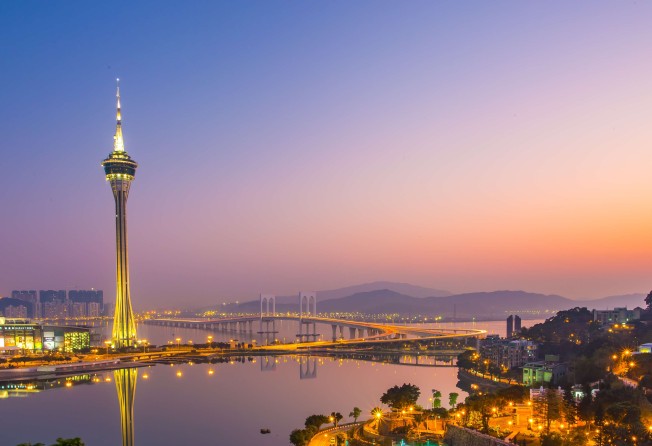Game on: healthier fiscal future forecast for Macau as casino industry shifts its focus to tourists and recreational gamblers
Uplift is soon expected following three years of economic contraction, as the city seeks to wean itself off total dependence on gaming revenues

Macau’s economy has had to cope with some severe reverses in the past couple of years, but there is light at the end of the tunnel with indicators pointing to a healthier fiscal future.
Following three years of contraction, 2017 could well see a return to growth as the casino industry, led by heavy-hitters such as Las Vegas Sands and Wynn Resorts, shifts its focus to lure recreational gamblers and straightforward tourists, according to Macau Chief Executive Fernando Chui Sai-on.
“Macau’s gaming industry and the whole economy will continue to adjust, but the decline may shrink to 7.2 per cent this year and even resume growth in 2017,” he told the city’s legislative assembly.
“It’s a good time for Macau to reposition after a 25-month gaming revenue drop.”
Gross domestic product – rated at 574,790 patacas per capita – in Macau fell by 20 per cent in 2015, as high-stakes gamblers were warned off what is the world’s largest gambling hub by a trenchant anticorruption campaign in mainland China.
However, the casino industry, which is responsible for half of Macau’s GDP, is in the midst of a construction boom which was initiated some years ago when the flow of gamblers from across the border showed no sign of letting up.
According to the chief executive, the Macau government is cooperating with the city’s six casino operators to “improve synergies” between gaming and other recreational pursuits.
Overall, Macau is aiming to lessen its reliance on gambling and is hoping to raise the proportion of casinos’ non-gaming revenue to around 10 per cent by 2020 from its present level of just under 7 per cent.
Macau’s tourism board has made a concerted push to market the city’s historical attractions, and its numerous gourmet offerings, and new resorts – while still centred around their gaming halls – have incorporated other, family friendly attractions.
However, last June casino receipts fell to their lowest level since September 2010, marking 25 consecutive months of decline. Last April, the International Monetary Fund forecast that the contraction in Macau’s economy will shrink slightly this year, before growing 0.7 per cent in 2017.
Analysts point to various signs in Macau’s economic recovery, starting with healthy indicators from Sands China, which owns The Venetian and several other substantial properties, which reported that mass-market gaming revenue rose in June for the first time in two years.
Sheldon Adelson, the group chairman, commented that he’s optimistic recreational gamblers and tourists are leading a recovery in Macau’s gaming industry.
In April and May this year, the city’s property sales transactions soared above the 2,000 mark, the best two-month result since 2013, and exceeding the 1,739 units sold in the spring of 2014 when prices hit their peak.
The banking sector is also showing signs of a cautious upturn in the economy. According to statistics released by the Monetary Authority of Macau, the proportion of international business in Macau’s banking sector rebounded slightly to 84.9 per cent at the end of June from 84.6 per cent at the end of March, while the share of international liabilities in total banking liabilities expanded to 80.4 per cent from 80 per cent at the end of March.
There were other optimistic signs in the authority’s most recent quarterly report.
“Macau’s current economic adjustment is cyclical, and the sign of bottoming-out is looming,” it stated.
“Economic contraction is likely to continue through 2016 but the degree is narrowing as mainly supported by improving net trade.”
The report also suggested that the completion of cross-border infrastructure projects such as the Hong Kong-Zhuhai-Macau Bridge and the new ferry terminal in Taipa would stimulate inbound tourism.
In Macau’s favour, it boasts relatively low taxes and a high degree of economic freedom, factors that are trump cards when it comes to attracting foreign companies.
Other competitive advantages include Macau’s legal framework and accounting standards that follow the best international practices.